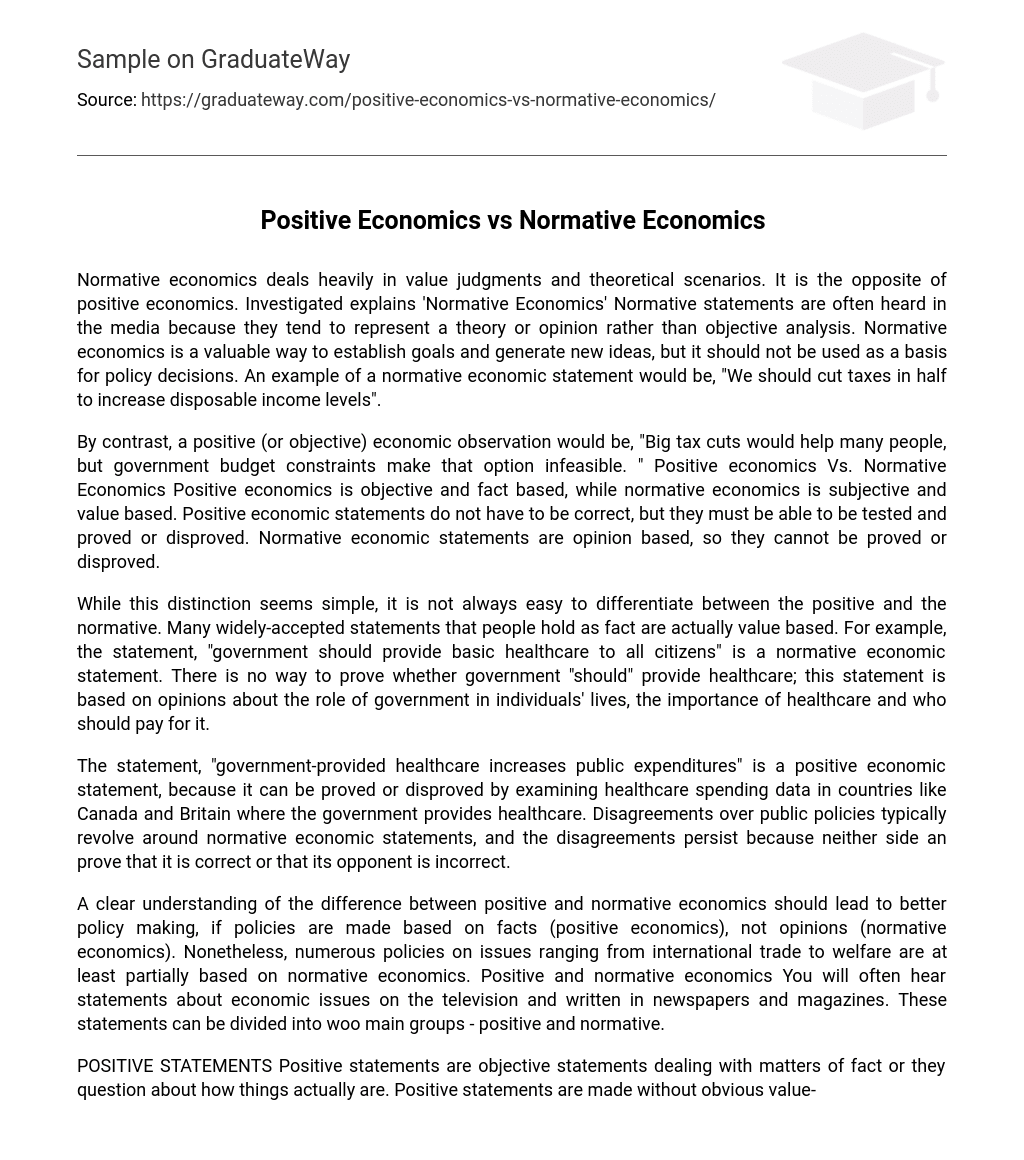Normative economics deals heavily in value judgments and theoretical scenarios. It is the opposite of positive economics. Investigated explains ‘Normative Economics’ Normative statements are often heard in the media because they tend to represent a theory or opinion rather than objective analysis. Normative economics is a valuable way to establish goals and generate new ideas, but it should not be used as a basis for policy decisions. An example of a normative economic statement would be, “We should cut taxes in half to increase disposable income levels”.
By contrast, a positive (or objective) economic observation would be, “Big tax cuts would help many people, but government budget constraints make that option infeasible. ” Positive economics Vs. Normative Economics Positive economics is objective and fact based, while normative economics is subjective and value based. Positive economic statements do not have to be correct, but they must be able to be tested and proved or disproved. Normative economic statements are opinion based, so they cannot be proved or disproved.
While this distinction seems simple, it is not always easy to differentiate between the positive and the normative. Many widely-accepted statements that people hold as fact are actually value based. For example, the statement, “government should provide basic healthcare to all citizens” is a normative economic statement. There is no way to prove whether government “should” provide healthcare; this statement is based on opinions about the role of government in individuals’ lives, the importance of healthcare and who should pay for it.
The statement, “government-provided healthcare increases public expenditures” is a positive economic statement, because it can be proved or disproved by examining healthcare spending data in countries like Canada and Britain where the government provides healthcare. Disagreements over public policies typically revolve around normative economic statements, and the disagreements persist because neither side an prove that it is correct or that its opponent is incorrect.
A clear understanding of the difference between positive and normative economics should lead to better policy making, if policies are made based on facts (positive economics), not opinions (normative economics). Nonetheless, numerous policies on issues ranging from international trade to welfare are at least partially based on normative economics. Positive and normative economics You will often hear statements about economic issues on the television and written in newspapers and magazines. These statements can be divided into woo main groups – positive and normative.
POSITIVE STATEMENTS Positive statements are objective statements dealing with matters of fact or they question about how things actually are. Positive statements are made without obvious value-judgments and emotions. They may suggest an economic relationship that can be tested by recourse to the available evidence. Positive economics can be described as “what is, what was, and what probably will be” economics. Statements are based on economic theory rather than raw emotion. Often these statements will be expressed in the form of a hypothesis that can be analyses and evaluated.
Examples: ; A rise in interest rates will cause a rise in the exchange rate and an increase in the demand for imported products ; Lower taxes may stimulate an increase in the active labor supply ; A national minimum wage is likely to cause a contraction in the demand for low-skilled labor ; The UK economy now has lower unemployment than Germany ; The American stock market has boomed in recent years NORMATIVE STATEMENTS Normative statements are subjective – based on opinion only – often without a basis in fact or theory. They are value-laden, emotional statements that focus on “what ought to be”.





